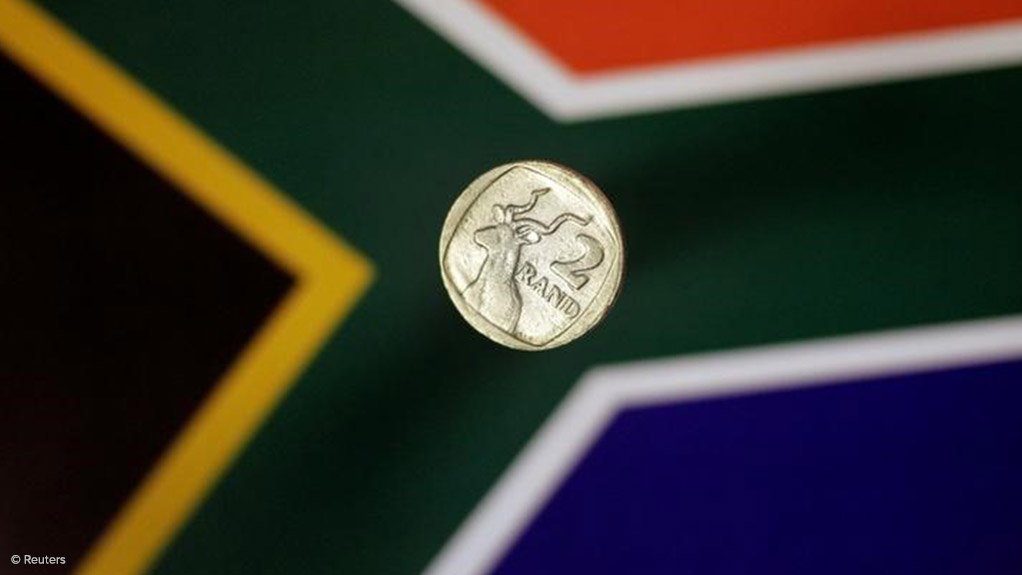Opposition parties have reacted to South Africa’s 0.1% GDP increase in the first quarter, with ActionSA and the Economic Freedom Fighters (EFF) laying blame for the dismal growth on the Government of National Unity (GNU).
Statistics South Africa (Stats SA) on Tuesday announced the 0.1% GDP increase, following an increase of 0.4% in the previous quarter.
The agriculture, forestry and fishing industry increased by 15.8%, contributing 0.4 of a percentage point to the positive GDP growth, primarily owing to increased economic activities reported for horticulture and animal products.
Stats SA said finance, real estate and business services increased by 0.2% adding 0.1% to the GDP. It noted that increased economic activities were reported for insurance and pension funding and auxiliary activities.
A decrease was noted in the manufacturing industry, which contracted by 2.0%.
Reacting to the figures, ActionSA called for a “complete overhaul” of industrial policy to prioritise key sectors and to create a “truly” business-friendly regulatory environment. It also urged the establishment of a high-level public-private Industrial Council to support domestic manufacturing and reduce import dependence.
ActionSA MP Alan Beesley said a year into the GNU, South Africa’s economy was stagnating, unemployment was deepening, and the government had “no plan to change course”.
He said Tuesday’s GDP figures confirmed that the economy was “barely breathing”, pointing to much-needed 3% to 4% growth to create jobs.
He accused the GNU administration of being “paralysed, distracted by internal horse-trading”.
Beesley said a collapse in productive capacity reflected years of “policy incoherence, failing infrastructure, unreliable energy, and unfair competition” from low-cost imports.
He believes that government has failed to create the enabling environment needed to support production, investment and job creation.
“In a country at South Africa’s level of development, a dynamic industrial sector should be driving growth, innovation and mass employment. Instead, manufacturers are being ground down by inefficiency and neglect. With loadshedding set to return in the coming weeks, this misery will only deepen, crippling what little momentum remains in key industries and further undermining any prospect of recovery,” he said.
COHERENT AND INTERVENTIONIST STRATEGY
For the EFF, the 0.1% marginal growth is a “clear demonstration” that the current coalition between what it terms “the former liberation movement and the racist liberal establishment” is incapable of reviving the economy.
“…instead, it continues to strip the State of its ability to stabilise and grow the economy through a coherent and interventionist strategy,” the EFF stated.
It said a break with neoliberalism and wholesale privatisation of State-owned enterprises (SOEs) was needed to rescue the economy.
“…until then, South Africa will remain trapped in low growth, mass unemployment and deepening inequalities,” the EFF said and added that this “dismal” economic performance must be read in the context of a broader structural crisis, saying the country’s real GDP growth had been stagnant since 2012, marking more than a decade of economic malaise.
The EFF has consistently called for a developmental State model with SOEs at the centre of economic transformation.
The party is proposing a new macroeconomic framework, in which fiscal policies must be aligned to clear employment and growth targets.
The EFF pointed to the negative growth in manufacturing, construction, and mining, saying this was a reflection of a government without a jobs plan, without a coherent industrial strategy, and without any intention of using the State as a driver of development.
“Instead of investing in State-led infrastructure development, the government has prioritised the privatisation of State-owned enterprises through Operation Vulindlela, a programme driven by the National Treasury and its global partners in capital accumulation,” it stated.
The party wanted the country’s manufacturing sector to be built through a deliberate reindustrialisation programme and said the outsourcing of economic policy to technocrats and financiers must end.
Meanwhile, GNU partner, the Democratic Alliance (DA) said that now that a revised Budget has been tabled, hard decisions need to be implemented to grow the economy “without delay”.
DA deputy spokesperson on Finance Wendy Alexander said the GDP figures showed that the DA was right to fight for economic growth and hard reforms as part of the Budget fight.
“South Africa cannot sustain itself on low growth. Our country needs higher levels of sustained growth to deliver jobs for millions of South Africans,” she stated.
Alexander added that her party would continue to use its position in the GNU to drive reforms to grow the economy.
ENCOURAGING PROGRESS
Government Communication and Information System acting director-general Nomonde Mnukwa said the growth, though marginal, reflected encouraging progress in key sectors, particularly agriculture, which grew by 15.8% owing to increased activity in horticulture and animal products.
She pointed to the transport storage and communication sectors, which also made a strong contribution, driven by gains in land and air transport.
“Government remains committed to driving inclusive growth and strengthening the foundations of economic recovery," she stated.
EMAIL THIS ARTICLE SAVE THIS ARTICLE ARTICLE ENQUIRY FEEDBACK
To subscribe email subscriptions@creamermedia.co.za or click here
To advertise email advertising@creamermedia.co.za or click here











